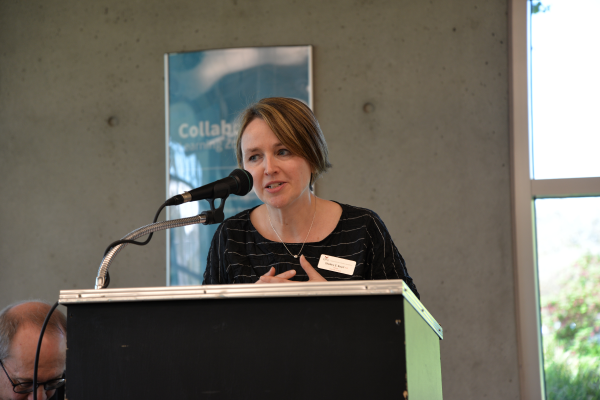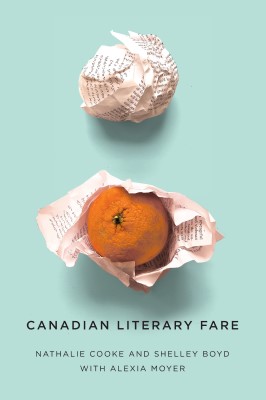
Canadians are big fans of Kraft Dinner. We eat more brightly-hued cylindrical noodles per capita than any country in the world – and a popular Barenaked Ladies song even pays tribute to it.
In her new book Canadian Literary Fare, Dr. Shelley Boyd digs into this statistic to see what bowls of KD mean in Canadian literature.
“Even though Canadians boast about their love of Kraft Dinner, and we have songs about it, what we read when we see Kraft Dinner in a poem or a novel or a play is usually signaling something rather complicated, and not always joyful. It’s about something that’s somehow missing,” says Boyd, Faculty of Arts dean at Kwantlen Polytechnic University (KPU).
Co-authored by McGill University professor Dr. Nathalie Cooke, Canadian Literary Fare explores why food matters in Canadian fiction, drama, and poetry.
“Authors don’t need to feed their characters. They aren’t alive. So when they do feed them – when food is there – it’s usually there for a particular reason,” says Boyd.
In her Kraft Dinner chapter, Boyd discusses the many mentions of the macaroni and cheese product, referring to it as a metonymical meal for its way of representing something else in the text, such as loneliness or colonialism.
“There’s many Indigenous writers who talk about Kraft Dinner explicitly, and being a meal that’s often eaten on reserves. It has a very complicated layer of expression and poverties.”
The book begins with 13 vignettes that explore the symbolism of specific food items, like bannock, which Indigenous writer Eden Robinson references in her novel Monkey Beach when one character declares, “I’m fry bread.” What follows are chapters of deeper study, in which the authors uncover food voices with complicated stories to tell of scarcity, hunger, and inequality.
“They tell quite different narratives than what you might find in a cookbook or in a tourist guide, where we often hear stories about bounty and the great variety of foods that Canadians have access to. But Canadian literature actually sheds light on a far more complicated story,” says Boyd.
Boyd and Cooke have long been interested in the study of food and literature, having previously collaborated with Alexia Moyer on a blog series that inspired the book. Both authors have also previously published books and papers on the topic, and Boyd has taught related courses at KPU – including one leading to her students hosting an exhibition on food and literature in the KPU library.
“Shelley (Boyd) and I have been long-time collaborators thinking about ways Canadian literature challenges readers to consider things hidden in plain sight,” says Cooke. “With this book we also venture to the market, kitchen and meal table, reading about foods sustaining Canadians, ones they source, savour, and remember. We read between the lines to understand what stories food choices tell.”
Canadian Literary Fare is published by McGill-Queen's University Press, and is available wherever books are sold.
Canadian Literary Fare is Boyd’s third book. Her 2020 book, Canadian Culinary Imaginations, co-edited by Dr. Dorothy Barenscott, is a collection of essays, interviews and art by contributors across Canada that spark conversations about food, Canada and cultural identity. In her 2013 book, Garden Plots: Canadian Women Writers and their Literary Gardens, Boyd explores the use of the garden motif in the works of five authors.